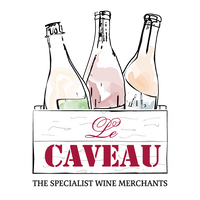
Fantastic natural wines and where to find them - John Wilson, Irish Times
John Wilson, Irish Times - Sat, Apr 28, 2018
Fantastic natural wines and where to find them
‘We did not invent anything, we simply returned to what our grandfathers did’
Two high priests of the natural wine movement visited Ireland recently. Both paid homage to “the Pope”, the late Marcel Lapierre, a producer in Morgon who started it all back in early 1990s. Jean Foillard owns vineyards in Morgon in Beaujolais and Thierry Puzelat in the Loire valley. Inspired by Lapierre, they began to take wine back to its roots.
“We did not invent anything, we simply returned to what our grandfathers did,” says Puzelat. “I went to school where I learned to make wine in the normal way, using all the standard treatments. Then one day I tasted a glass of wine and thought s**t! That’s what I want to drink; and to make.”
There is no legal definition for natural wine. Many argue that all wine is natural, yet that ignores the level of manipulation – additives and treatments – that are standard in a great many “normal” wines, inexpensive wines in particular. These days, many prefer to use the terms low-intervention or light-touch instead of natural.
The basic tenets are organic or preferably biodynamic viticulture, indigenous yeasts, no enzymes, filtering or fining, and, most controversial of all, little or no sulphur. A winemaker walks a tightrope when they under-sulphur or don’t add any at all. Sulphur (a natural byproduct of fermentation) has been used since Roman times to prevent bacterial spoiling and oxidising.
Natural wines are a mixed bag. Some are clearly faulty or at least have aromas that have little to do with wine (or “terroir” as some claim). Others taste more like cider. Puzelat agrees: “For the first five years, we made a lot of vinegar,” he says, adding that it takes a decade or more to convert your vineyards to sustainable viticulture. But the good wines have a wonderful freshness and purity, a liveliness not always found in everyday wines. They are a joy to drink.
While it is easier to farm organically in warmer, drier climates, wines from cooler regions have higher acidity, which acts as a natural antiseptic. It may be no coincidence that the highest concentration of natural wines are found in the Loire and Beaujolais, both regions that produce wines high in acidity and low in alcohol.
I believe that generally, the best, most interesting wines come from small producers who care for their vineyards and often work organically or biodynamically. They also use as few treatments as possible in the cellar. Pascal Rossignol of specialist importer Le Caveau probably got it right when he argued it is not just about levels of sulphur. “Honest wine is about trust; wine that is made by good growers, working with good importers and sold to wine drinkers who care.” According to Puzelat, “Natural wine is not the aim. It is not enough. We have to make good wine naturally.”
Few could disagree with that.


